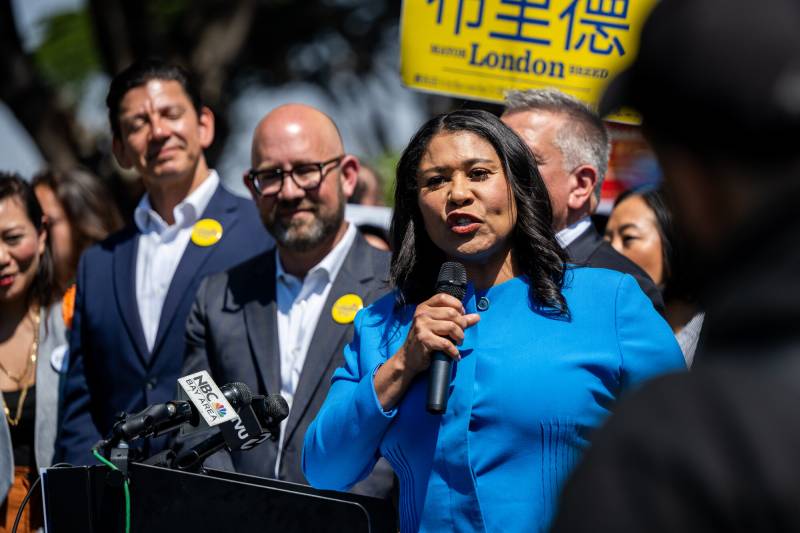Mayor London Breed officially signed San Francisco’s new $15.9 billion budget on Thursday morning after the city faced a deficit of hundreds of millions of dollars and looming fears over its expansion.
The spending plan for the next two fiscal years uses one-time funds and expense reductions, including from public health programs, to help close a $789 million deficit. In the coming five years, that deficit is expected to increase to $1.3 billion, according to city projections.
Among the budget’s significant outlays are a minimum wage increase to $25 an hour for city workers and an investment of $45 million to outreach and drug treatment programs coming from settlements the city has reached with drug companies and pharmacies over their roles in the overdose crisis. The spending plan sustains funding for programs addressing homelessness.
It also includes increases to law enforcement and funding for downtown revitalization — both key areas of Breed’s reelection campaign amid a contentious race. Her proposal included that new and existing entry-level police employees would receive nearly 8% salary increases, and incentives would be added to attract and retain early and mid-career officers to stem a staffing shortage. The plan also allocated $3.7 million over two years for new surveillance cameras and data collection following the passage of Measure E in March.


